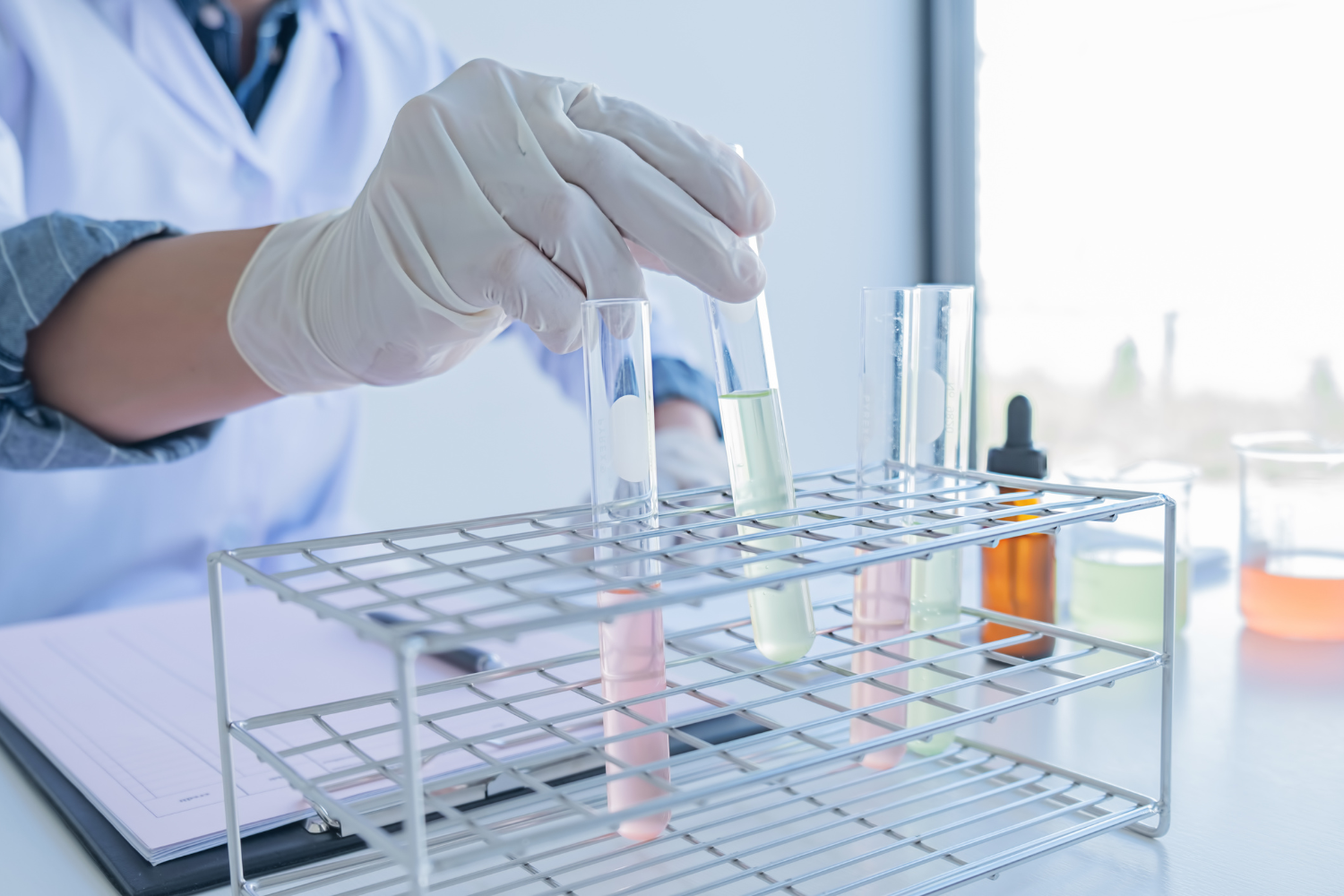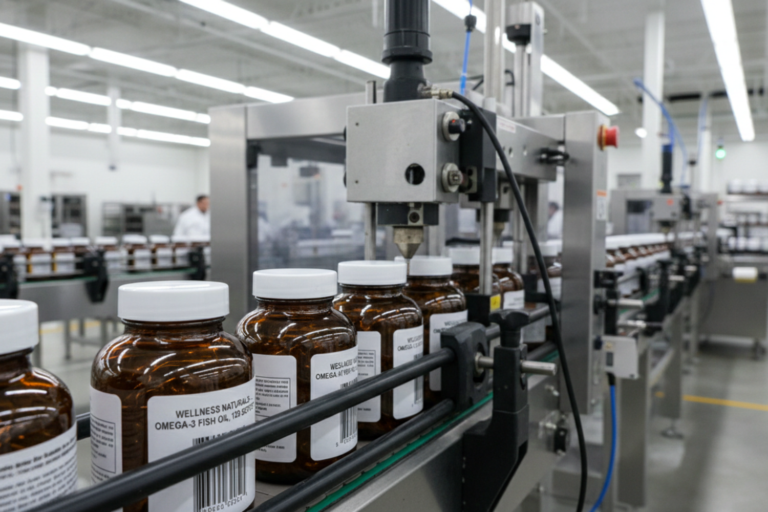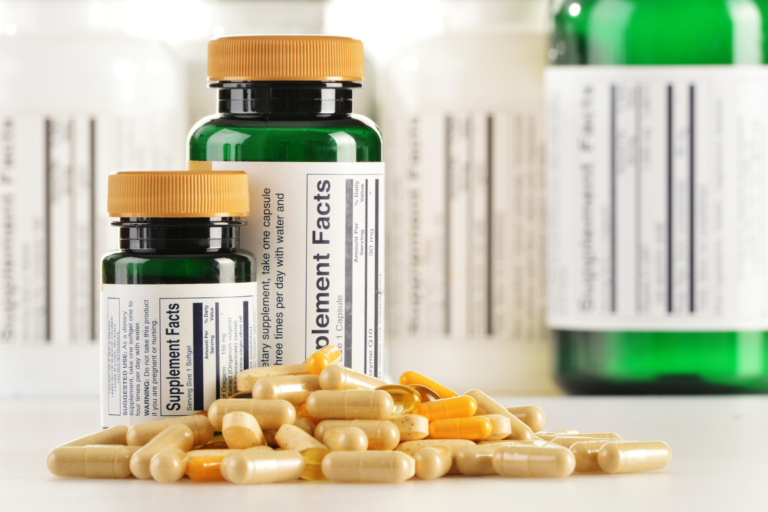Third-party supplement testing is critical for ensuring the safety, quality, and purity of dietary supplements, protecting both consumer health and a brand’s reputation. Accredited laboratories may use advanced methods like high-performance liquid chromatography, gas chromatography, or mass spectrometry to evaluate supplements based on the required analysis.
Independent testing helps manufacturers align with FDA compliance, maintain quality standards, and address issues like heavy metals or mislabeling. For supplement brands, investing in reliable third-party testing demonstrates a commitment to safety and builds trust with consumers in a competitive market.
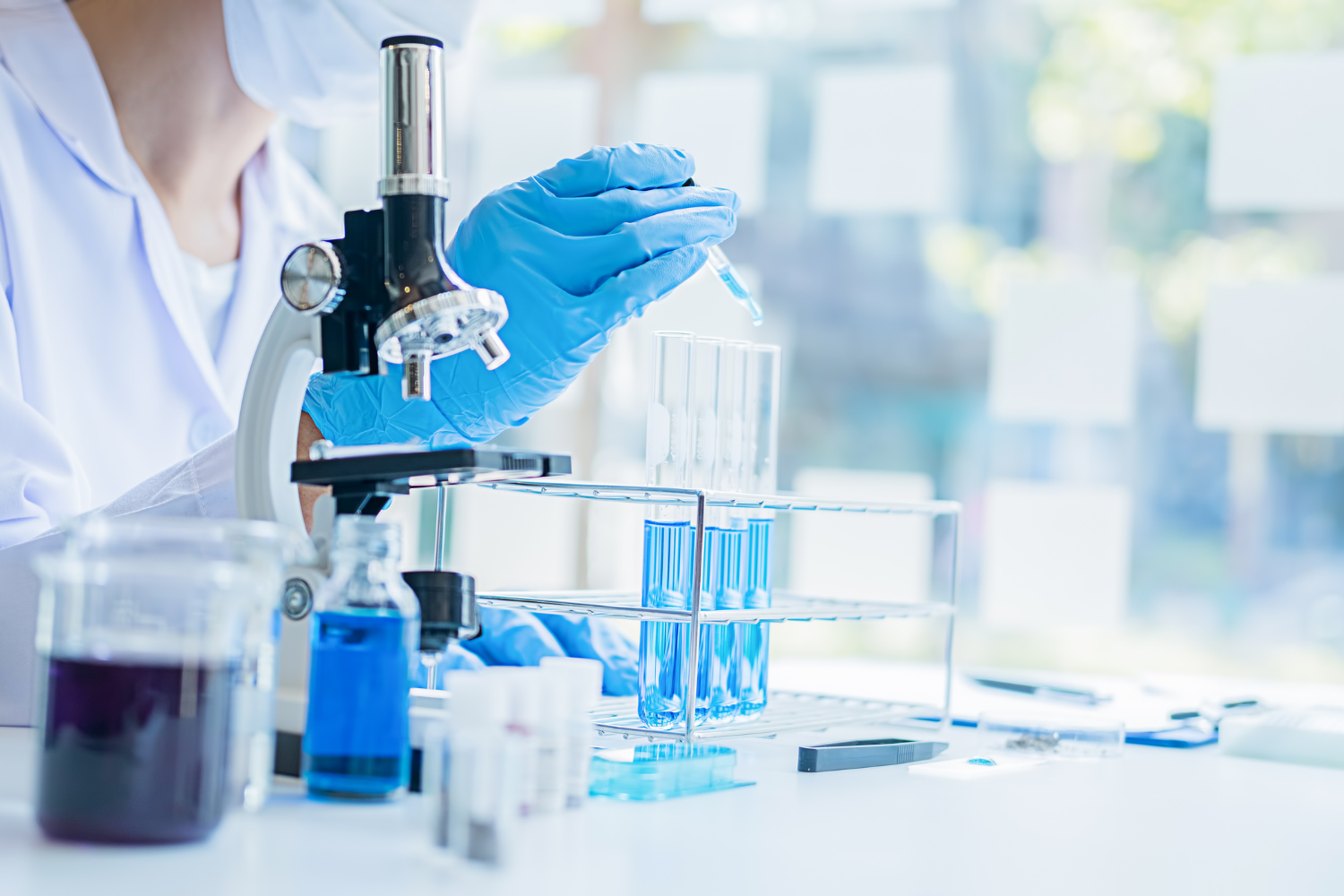
What is Third-Party Supplement Testing?
Third-party supplement testing involves independent laboratories analyzing dietary supplements to verify their quality, safety, and compliance with regulatory standards. This testing confirms that manufacturers’ claims about ingredients, potency, and purity are accurate, ensuring consumers receive reliable and effective products.
Key Roles of Third-Party Testing
- Verifies ingredient accuracy and potency in supplements.
- Confirms the purity of raw materials and finished products.
- Detects harmful contaminants, such as heavy metals or pesticides.
- Ensures label claims match the actual content of the product.
Key Areas Tested
Third-party testing covers critical areas of dietary supplement safety and efficacy, providing a full range of analyses to evaluate products effectively.
- Contamination Testing: Checks for heavy metals, pesticides, and harmful microbial content.
- Ingredient Purity: Confirms the presence of key ingredients and their proper dosage.
- Label Accuracy: Verifies that the label claims align with the supplement’s formulation.
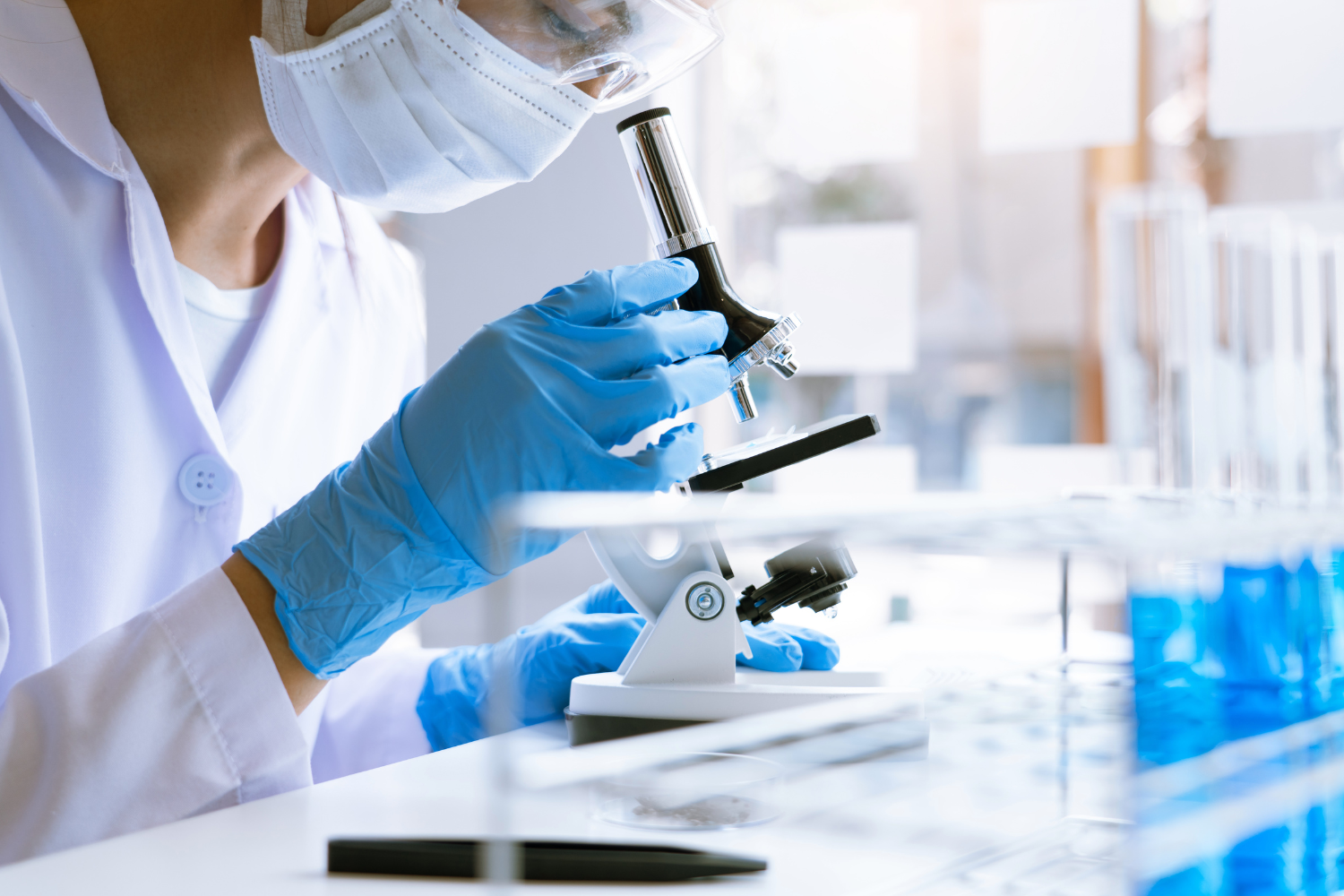
Difference Between In-House and Third-Party Testing
Unlike in-house testing conducted by manufacturers, third-party testing is performed by accredited laboratories with no stake in the product’s sales or reputation. This independence ensures unbiased results, allowing for objective verification of a product’s quality and compliance.
Third-party testing often employs advanced analytical methods like mass spectrometry and high-performance liquid chromatography, delivering accurate results that consumers and regulators can trust. While in-house testing can support quality control processes, independent testing provides an additional layer of verification that enhances a brand’s credibility in the supplement industry.
Why Third-Party Testing is Critical for Your Brand
Third-party testing is pivotal in helping dietary supplement brands maintain quality standards, ensure compliance, and build trust with health-conscious consumers.
Builds Consumer Trust
Seals and certifications from independent testing are powerful tools for gaining customer confidence. Labels featuring statements like “tested for purity” or “free from harmful contaminants” demonstrate a brand’s commitment to safety. These verifications are particularly valued by consumers seeking supplements for their health and wellness routines.
Today’s consumers demand supplements that are clean, effective, and safe. Health-conscious customers actively seek products with certifications that confirm compliance with high standards, making third-party testing essential for brands competing in this market.
Compliance with Regulations
Independent testing ensures supplements meet regulatory requirements, including FDA standards and Good Manufacturing Practices (GMP). For certain certifications, such as NSF or international market entry, third-party verification is often mandatory to confirm safety and efficacy.
Third-party testing is also essential for brands expanding globally, as many countries require rigorous verification to ensure that nutrition products comply with their specific health and safety laws. Testing is a crucial step in obtaining certifications that meet diverse regional requirements.
Protects Against Contaminants and Mislabeling
Contaminants such as heavy metals, pesticides, or microbial substances can pose significant risks to consumer health and brand reputation. Testing methods like gas chromatography or compendial methods help identify harmful contaminants before products reach the market.
Accurate testing also prevents mislabeling, ensuring critical ingredients are present at the stated levels. This protects brands from recalls, lawsuits, and potential damage to their reputation while delivering safe, reliable products to customers.
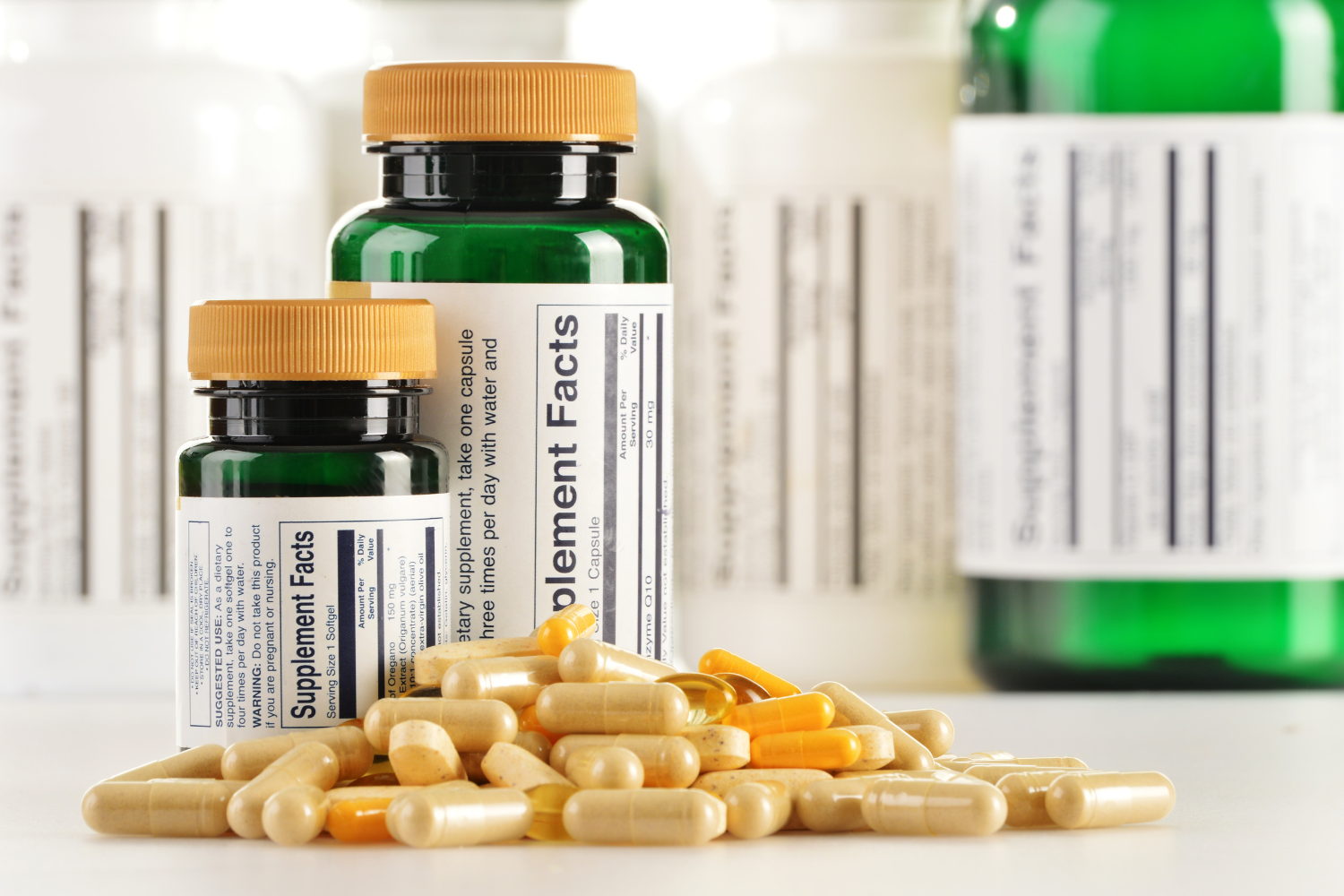
Types of Third-Party Tests for Supplements
Third-party testing companies provide a range of analytical methods to ensure supplements meet safety, quality, and regulatory standards. These tests verify that nutrition products are free from contaminants, meet label claims, and remain stable over time.
Purity Testing
Purity testing verifies that supplements are formulated with the listed active ingredients and assesses them for harmful contaminants. This process is crucial for maintaining product integrity and consumer safety.
Common Issues Detected:
- Heavy metals like lead and mercury.
- Pesticides from raw material contamination.
- Residual solvents left from manufacturing processes.
Potency Testing
Potency testing ensures supplements deliver the stated dosage of active ingredients. This helps consumers achieve desired results while maintaining confidence in the product. Analytical methods like high-performance liquid chromatography confirm ingredient strength.
Inaccurate potency labeling can mislead consumers, harm brand reputation, and result in regulatory penalties. Testing ensures products deliver on their claims, avoiding legal and financial consequences for manufacturers.
Contaminant Testing
Contaminant testing identifies harmful substances to protect consumer health and ensure compliance. These tests detect pathogens, allergens, and substances banned by organizations like the World Anti-Doping Agency (WADA), ensuring safety for all users, including athletes.
Harmful Substances:
- Pathogens such as bacteria and mold.
- Allergens that can cause severe reactions.
- Banned substances prohibited in sports nutrition products.
Stability Testing
Stability testing evaluates a supplement’s performance over its shelf life and establishes accurate expiration dates. It assesses physical, chemical, and microbial stability under different conditions. This testing assesses whether products maintain their intended quality and performance throughout the stated usage period.
Label Accuracy Testing
Label accuracy testing verifies that the ingredient amounts listed on the product match its actual contents. This is critical for maintaining trust, ensuring compliance, and meeting quality standards. Analytical methods like mass spectrometry or compendial methods are used to confirm consistency and accuracy in each batch of supplements.
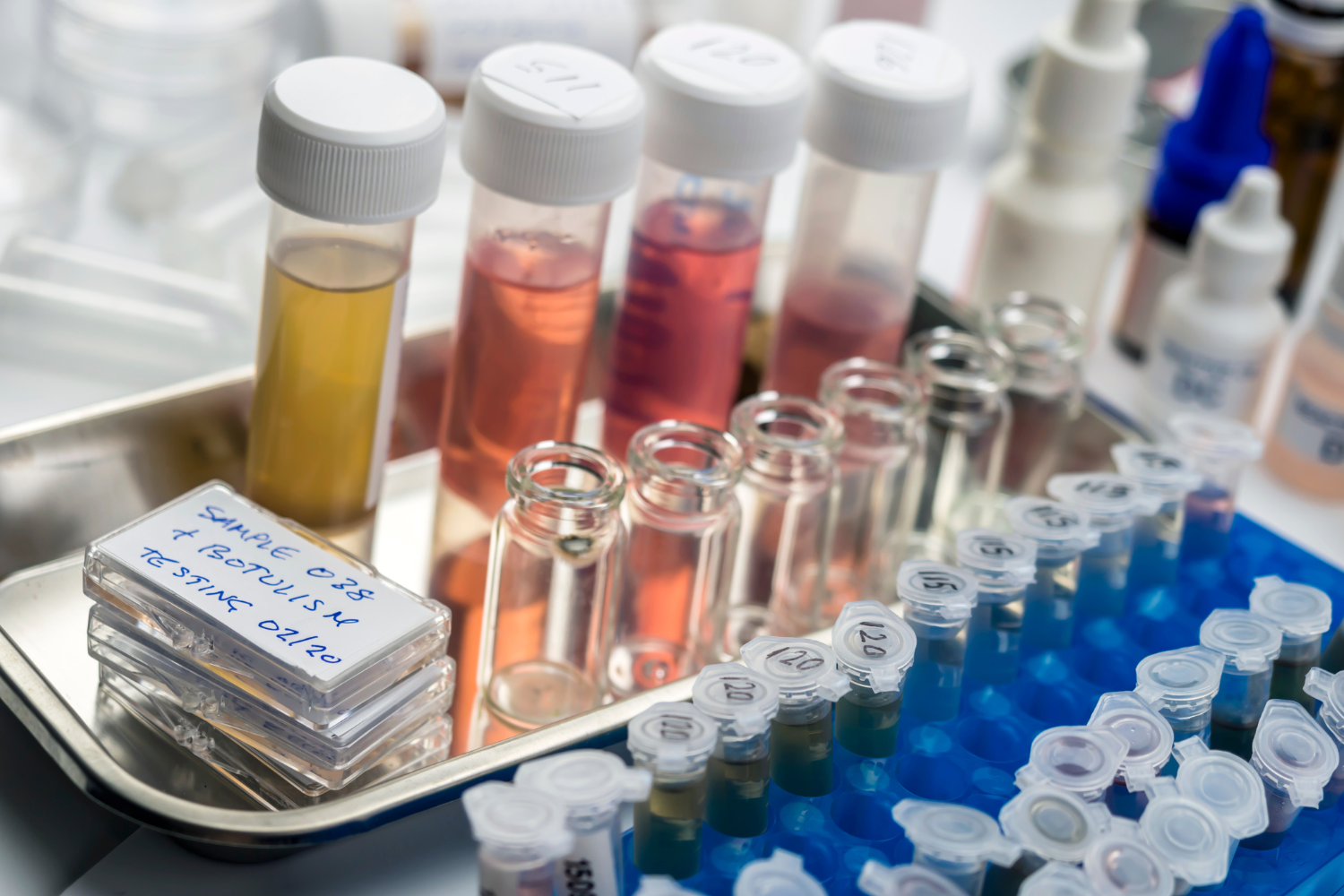
How to Choose a Third-Party Supplement Testing Company
Choosing the right testing partner ensures that your brand meets industry standards while maintaining consumer confidence. When evaluating testing companies, focus on certifications, expertise, and service reliability.
Certifications and Accreditation
Accredited laboratories provide reliable and recognized results that are accepted by regulatory bodies. These certifications demonstrate the lab’s adherence to high-quality standards in testing processes.
Industry-Recognized Certifications:
- ISO/IEC 17025 for lab competence.
- NSF International for dietary supplement safety.
- Good Manufacturing Practices (GMP) compliance.
Range of Testing Services
A reliable third-party testing company should offer comprehensive services covering every aspect of supplement analysis. This includes purity, potency, contaminant, stability, and label accuracy testing, ensuring that all product quality and safety requirements are met. Partnering with a lab that provides a full range of services eliminates the need to work with multiple vendors, simplifying the testing process and reducing potential delays.
Choosing a lab with expertise in dietary supplements and sports nutrition products is equally important. Specialized labs have experience analyzing complex formulations, testing for key ingredients like amino acids, and ensuring compliance with industry standards. Their knowledge of advanced analytical methods ensures accurate results tailored to your brand’s unique requirements.
Reputation and Experience
Working with a reputable third-party testing company ensures your dietary supplement undergoes rigorous analysis using proven methods and state-of-the-art technologies. Experienced labs bring expertise in identifying harmful contaminants, verifying key ingredients, and analyzing complex formulations, such as sports nutrition products. A lab’s reputation can provide insights into its reliability, accuracy, and ability to meet regulatory standards.
Tips:
- Check if the lab collaborates with recognized brands or has certifications from industry leaders like NSF or ISO-accredited bodies.
- Verify their expertise in testing methods like mass spectrometry, high-performance liquid chromatography, and compendial methods.
- Research reviews, client testimonials, and case studies to confirm the lab’s track record in delivering reliable and compliant results.
Turnaround Time and Costs
Efficient testing services are essential for supplement manufacturers aiming to launch products on schedule while maintaining high quality. The testing company should offer a balance of quick turnaround times and precise results. Additionally, clear pricing ensures no surprises could disrupt budgeting during product development.
Tips:
- Opt for labs that provide detailed timelines for testing processes, especially for critical tests like contamination and potency analysis.
- Request transparent pricing with an itemized quote for tests such as heavy metals, amino acids, or stability testing.
- Ensure no hidden fees exist for additional services like sample storage, re-testing, or certification.

Top Certifications to Look for in Third-Party Testing
Certifications from accredited organizations ensure that third-party testing companies meet high standards for quality, safety, and reliability. These certifications verify that supplements are tested according to industry and regulatory requirements, giving consumers confidence in the products they purchase.
NSF International Certification
NSF certification is widely recognized in the supplement industry for verifying that products meet rigorous safety and quality standards. Labs with this certification ensure supplements are free from harmful contaminants and banned substances, making them suitable for consumers and athletes. NSF certification ensures compliance with its own rigorous standards, which align with many FDA requirements and helps brands gain trust by displaying the NSF seal, which signifies a commitment to consumer health and safety.
GMP (Good Manufacturing Practices)
GMP certification ensures that manufacturing processes and product testing meet high-quality standards. Labs operating under GMP guidelines adhere to strict raw material sourcing, formulation, and finished product testing protocols. This certification assures manufacturers and consumers that the supplement is free from contamination, accurately labeled, and consistent across batches, reinforcing a brand’s dedication to producing reliable and safe products.
ISO/IEC 17025
ISO/IEC 17025 certification confirms a laboratory’s technical competence and adherence to international standards for testing and calibration. It ensures that the lab employs advanced analytical methods, such as high-performance liquid and gas chromatography, to deliver precise and accurate results. It also demonstrates that the lab can produce consistent, unbiased data that regulators, manufacturers, and consumers can trust.
Informed-Sport/Informed-Choice
Informed-Sport and Informed-Choice certifications focus on dietary supplements designed for athletes. These certifications ensure that products are free from banned substances, providing athletes with safe options that comply with regulations set by organizations like WADA. Labs with these certifications follow stringent testing processes to protect athletes from inadvertently consuming prohibited substances, safeguarding their health and careers while boosting brand credibility.

Benefits of Partnering with a Third-Party Testing Company
Partnering with an accredited third-party testing company ensures your supplements meet rigorous quality, safety, and compliance standards. It’s a critical investment for building consumer trust and protecting your brand in the competitive supplement market.
Ensures Product Safety and Quality
Third-party testing reassures consumers by verifying the quality and compliance of dietary supplements with industry standards. Independent labs use advanced testing methods to confirm the absence of harmful contaminants, verify ingredient potency, and ensure compliance with label claims. This level of scrutiny demonstrates that your brand prioritizes consumer health and delivers high-quality nutrition products.
Protects Brand Reputation
Testing supplements through a reliable third party helps identify and address potential contamination or mislabeling issues before products reach the market. Avoiding product recalls, lawsuits or negative consumer feedback is essential for maintaining a brand’s reputation. Certifications and accurate testing also communicate transparency and trustworthiness to customers, which is vital in the competitive supplement industry.
Meets Legal and Industry Requirements
Compliance with legal and industry standards is critical for selling supplements in domestic and international markets. Third-party testing ensures your products meet FDA regulations, GMP standards, and certifications like NSF or ISO/IEC 17025. This prevents legal risks and simplifies entry into global markets where strict regulatory compliance is mandatory.

Why Third-Party Testing is Essential for Supplement Brands
Third-party testing is a non-negotiable step for supplement brands committed to safety, quality, and credibility. It ensures products are free from harmful contaminants, meet regulatory standards, and deliver on label claims, building consumer trust and protecting brand reputation.
Partnering with a reputable testing company with advanced methods and industry-recognized certifications is crucial for producing reliable supplements that stand out in the competitive market. Investing in thorough, independent testing ensures compliance and sets the foundation for long-term success in the supplement industry.
Frequently Asked Questions
What does third-party testing for supplements involve?
Third-party testing evaluates supplements for purity, potency, stability, label accuracy, and the presence of harmful contaminants like heavy metals or pathogens.
How much does third-party supplement testing cost?
Testing costs vary depending on the type of analysis required, ranging from $100 to $500 per test. Factors like complexity and sample quantity influence pricing.
How do I know if a testing company is reputable?
Look for certifications such as ISO/IEC 17025 or NSF, check client reviews and testimonials, and verify the company’s experience in supplement testing.
Can I market my supplements as “tested” once they pass third-party testing?
Yes, you can promote your supplements as third-party tested, but ensure your claims align with legal guidelines and certifications to avoid misleading consumers.
Why is third-party testing better than in-house testing?
Third-party testing provides unbiased results through independent laboratories, offering greater reliability and credibility than in-house manufacturer tests.
References
- U.S. Food and Drug Administration. (2023). Accredited Third-Party Certification Program. https://www.fda.gov/food/importing-food-products-united-states/accredited-third-party-certification-program
- U.S. Food and Drug Administration. (n.d.). CFR – Code of Federal Regulations Title 21. https://www.accessdata.fda.gov/scripts/cdrh/cfdocs/cfcfr/cfrsearch.cfm
- U.S. Food and Drug Administration. (2024). Current Good Manufacturing Practices (CGMPs) for Food and Dietary Supplements. https://www.fda.gov/food/guidance-regulation-food-and-dietary-supplements/current-good-manufacturing-practices-cgmps-food-and-dietary-supplements
- U.S. Food and Drug Administration. (2024). Dietary Supplements | FDA. https://www.fda.gov/food/dietary-supplements
- U.S. Food and Drug Administration. (2024). Questions and Answers on Dietary Supplements | FDA. https://www.fda.gov/food/information-consumers-using-dietary-supplements/questions-and-answers-dietary-supplements
- U.S. Food and Drug Administration. (2018). Small Entity Compliance Guide: Current Good Manufacturing Practice in Manufacturing, Packaging, Labeling, or Holding Operations for Dietary Supplements. https://www.fda.gov/regulatory-information/search-fda-guidance-documents/small-entity-compliance-guide-current-good-manufacturing-practice-manufacturing-packaging-labeling
